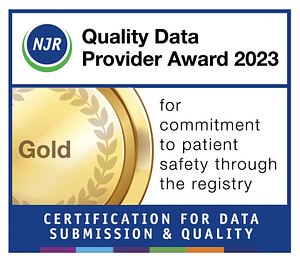Global healthcare technology company Clanwilliam has announced the full launch of Pippo, an innovative patient focused app designed to streamline and simplify interactions between patients and GPs in Ireland. The roll out of the application is enabled by a multi-year seven figure investment with several hundred thousand euro already invested in the solution.
Pippo reduces the burden of managing healthcare administration by simplifying the management of repeat prescription requests, appointment bookings, and other patient requests. A pilot version of the app enabling the management of patient bookings was rolled out across GP practices nationwide last year. An average of 40 hours every month in administrative duties was saved by practices using Pippo over the course of the successful pilot scheme.
The full launch of Pippo includes the introduction of a new online repeat prescriptions functionality into the app. This functionality is expected to save participating practices an estimated 15 to 30 minutes per prescription and unlock valuable clinical capacity.
Many GP practices currently manage repeat prescription requests, patient appointment bookings and other requests via time intensive channels, such as phone calls, consuming valuable practice capacity. Pippo streamlines the management of these administrative functions through a fully digital and easy-to-use platform that enables patients of participating clinics to manage requests online.
Designed with stringent security standards, the platform ensures the secure end-to-end protection of patient data and is fully interoperable with existing GP practice management systems including Socrates and Helix Practice Manager.
Commenting on the full launch of Pippo, Eileen Byrne, Managing Director of Clanwilliam Ireland, said, “The nature of healthcare is rapidly evolving in our digital age. Increasingly, digital technologies have a crucial role to play in making existing healthcare services more agile, flexible and responsive, for the benefit of both healthcare professionals and their patients.
“We are delighted to now be able to offer repeat prescriptions functionality through the app, providing another seamless, patient-led interaction that creates efficiencies for practices.
“With its capacity to deliver seamless, secure and efficient interactions between GPs and patients, the roll out of Pippo is an important step forward on this journey of transforming healthcare. By increasing the efficiency of GP patient interactions including appointment booking, payments, and refilling prescriptions in a simple and easy to use way, we’re helping to unlock significant benefits for both doctors and patients.
Through Pippo and the ongoing development of our range of pioneering healthcare innovations, we hope to continue our progress in improving healthcare delivery and realising our vision of a fully connected healthcare system for all.”
For over 25 years, Clanwilliam has forged successful integrations and partnerships with healthcare technology providers and worked with key stakeholders such as the Department of Health, ICGP, and the HSE to help shape the future of the digital healthcare space in Ireland. Pippo is the latest in a series of healthcare innovations aligned with the HSE eHealth programme of work, including digital health initiatives such as Chronic Disease Management, e-Referrals, electronic prescriptions, the newly launched STC Analyser, and Covid vaccinations.
Pippo is part of Clanwilliam, founded in 1996 in Dublin, when Howard Beggs established Medicom Medical Computer Solutions to help doctors utilise technology to deliver better care. It has grown into a global healthcare group of more than 25 technology products and services committed to improving healthcare across the world. It has 19 offices and more than 1,050 staff in the UK, Ireland, New Zealand, Australia, and India.
To request more information about Pippo, contact +353 1 463 3000.
[News published on the Irish Times 2/4/24: https://www.irishtimes.com/technology/2024/04/02/clanwilliam-unveils-new-app-to-streamline-gp-practices/)









